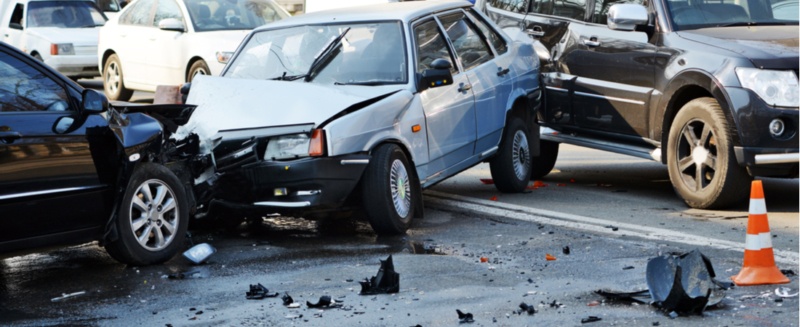Collisions aren’t the only way your car can be irreparably damaged. A fallen tree, a major flood, or a fumbled theft could quickly end your car’s days on the road. More than 5 million vehicles are totaled by these and other causes every year, according to the National Automobile Dealers Association (NADA).
But the word “totaled” can have very different meanings for different people.
Individuals often say their car is totaled if it’s really mangled, but insurers take the word a lot more seriously. It’s a good idea to understand the implications of having a totaled car before you file an insurance claim.
Insurance facts: What does it mean when your car is totaled?
Auto insurance companies consider a car to be totaled if it’s damaged to the point that it isn’t worth fixing. For example, if your car is worth $10,000, but the damage would cost $7,000 to repair, there may be little value in making those repairs.
A good mechanic will usually be able to tell you how much it would cost to fix your car. That quote, along with some clear photographs, can help you speak knowledgeably about your vehicle with insurers.
How does your insurance company decide your car is totaled?
Auto insurance adjusters will want to know the condition of your vehicle before the accident so they can assess what it was worth before it was damaged. Some companies use their own standards, while others choose to consult the values listed in Kelley Blue Book or on Edmunds.com. Insurers may also want to get an outside appraisal.
According to Linda Rey, a licensed insurance agent at Rey Insurance, any outside assessments that differ from industry standards could prompt negotiations.
“If there’s a severe disparity in the cost and valuation of the vehicle and how much the company said [it is] going to give the client then [agents] might get involved,” Rey says. “There’s always two sides to every story so we try to listen to both sides and be an advocate for the client.”
It is possible to challenge the value assigned to your car by an insurer. You’ll need to speak up as soon as possible, share any third-party information you have, and keep organized records.
What happens if your car is totaled but you still owe money on it?
Your auto insurer will not cover any remaining balance you owe to lenders. If you want to be fully protected, you may want to consider purchasing guaranteed auto protection (or “gap”) insurance.
Gap coverage can make up the difference between your car’s actual cash value and the amount you still owe on a loan. It can be a good idea to purchase gap coverage if you made a low down payment, have a high interest rate, or own a vehicle that depreciates quickly.
Some lenders require gap insurance before you can apply for a loan, so it could already be a part of your policy. Taking steps to confirm your level of protection now could help you avoid surprises during a stressful time.
The downside is that more insurance means higher premiums. Figure out how much coverage you can afford first and then weigh that against the consequences of losing money in an accident.
[amazon_link asins=’1524763438,B07881JDY9,B000RL3UJA,B07644ZS1D’ template=’ProductCarousel’ store=’thinkglink-20′ marketplace=’US’ link_id=’344c01d8-1339-11e8-8094-3f72d25c205d’]






